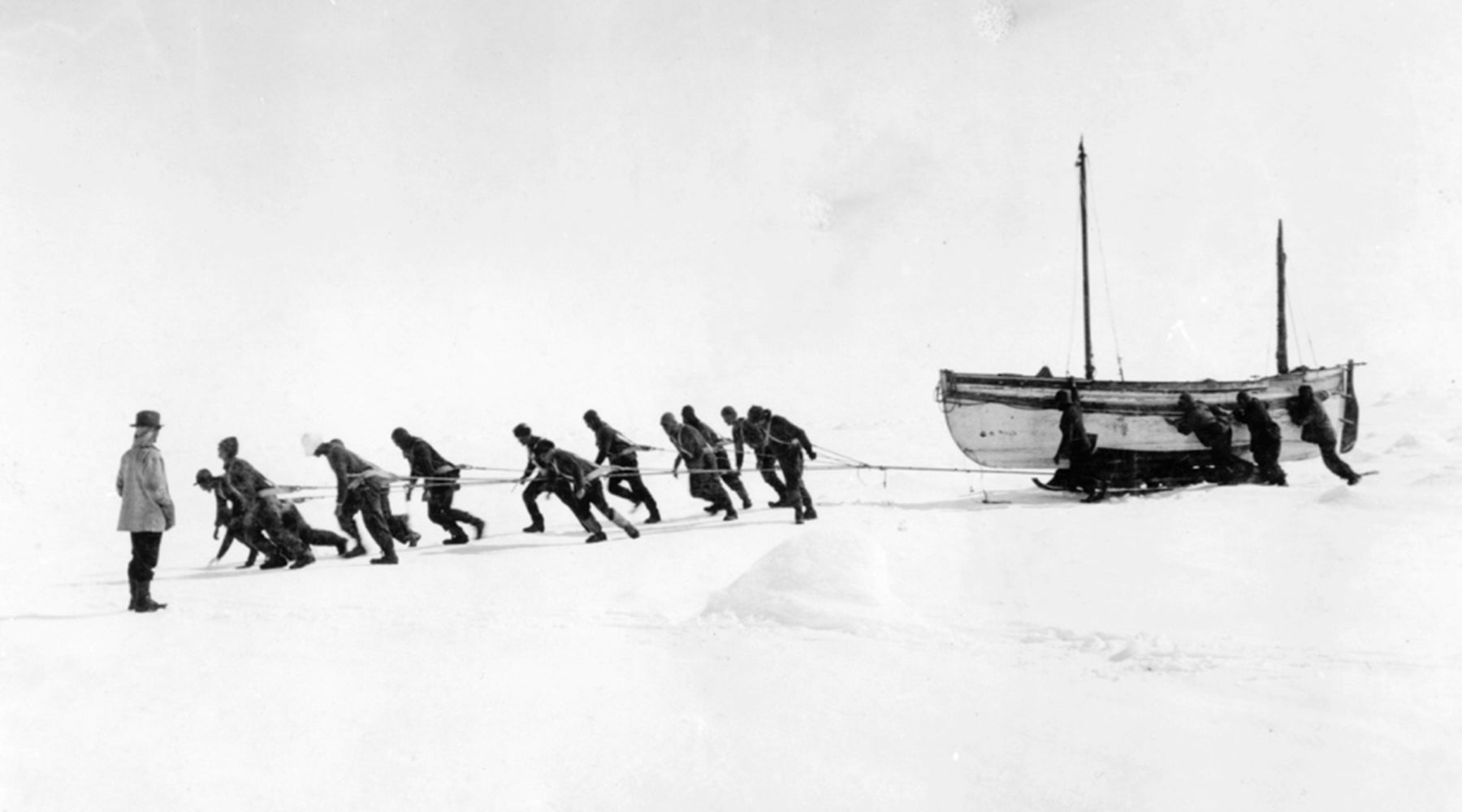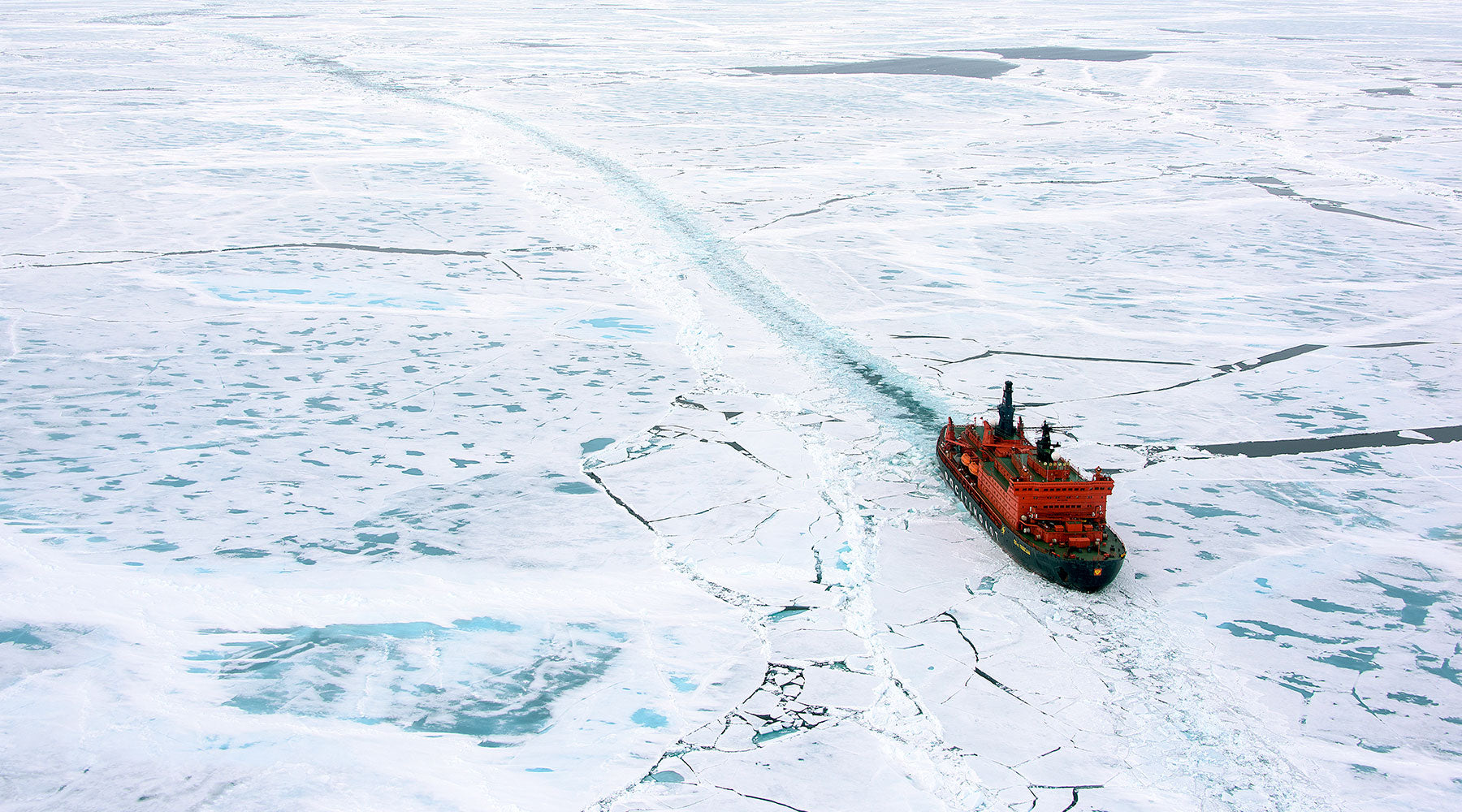
The make of the man, by Ben Saunders
The Hon. Alexandra Shackleton discusses the values and achievements of her grandfather with record-breaking polar explorer Ben Saunders.
Success was not a given for Ernest Shackleton. Born into an unprivileged home in Ireland, before moving to London where he was educated, he enrolled in the merchant navy as a teenager before joining Scott’s Discovery Expedition in 1901. Over the following two decades, he worked hard to prove himself as an equal to Scott. And yet, while Shackleton’s successes mounted, recognition proved fleeting.
“My grandfather once listed the four qualities he thought a polar explorer should have: optimism, patience, idealism and courage.” – The Hon. Alexandra Shackleton
Shackleton’s non-establishment background meant he had to seek backing from corporate sponsors and wealthy benefactors, whereas Scott could look to the Royal Geographical Society. Nevertheless, Shackleton’s remarkable personal charisma made him extraordinarily popular and he was successful in attracting backing for his grand visions.

“The quality I look for most is optimism: especially optimism in the face of reverses and apparent defeat. Optimism is the true moral courage.” – Sir Ernest Shackleton
Shackleton’s relentless optimism was no doubt another source of his success, but he was not reckless. Known as ‘Old Cautious’ by his men, Shackleton was known for weighing up the options in every situation.
His pragmatism was most notably demonstrated when he turned back on his 1907 Nimrod Expedition, only 97 miles short of the South Pole. Shackleton recognised that if he were to achieve his goal, it would be at the sacrifice of his life and the lives of his team, as they would undoubtedly perish on the return journey due to a lack of supplies.

On his greatest adventure – the Endurance Expedition – Shackleton again revised his objective of crossing the entire Antarctic continent to one of bringing all his men home alive. His ship, the Endurance, sank slowly into the black depths while its crew became stranded on the ice floe, faced with almost certain death once their supplies ran out. The James Caird lifeboat journey spanned over 800 miles of the tempestuous Southern Ocean, followed by a subsequent crossing of South Georgia on foot. It remains one of the most extraordinary stories of courage and survival against the odds.
In the end it was Shackleton’s unwavering optimism that proved vital to their endurance. Waking his men every day, holding fast to the belief that while they were alive, they still had a chance. When Shackleton left on the rescue mission, second-in-command Frank Wild sustained the optimism within the camp on Elephant Island, every day hailing the men with: “Roll up your bags boys, the Boss is coming today.” And on 30 August 1916 the Boss did come for them.

Another of Shackleton’s great qualities was his idealism. This was essential to his survival in the frozen Southern wilderness and his ability to lead his men to safety. Shackleton’s love of books and poetry, particularly Browning and Tennyson, informed his decisions, his faith, his view of the world and fuelled his imagination as they proved gateways to worlds beyond his personal experiences. Indeed, it was Ernest’s romantic nature that first took him to Antarctica and then drew him back time and time again.
“The main reason he first went to the Antarctic was for love, to impress Emily Dorman, my grandmother. Then, having got there, he fell in love with Antarctica.” – The Hon. Alexandra Shackleton
It was, perhaps, in Shackleton’s darkest days, stranded on the Antarctic ice with his crew, that this character trait proved its value as he enticed the men into debates on all manner of subjects, keeping morale high and minds engaged. For his imagination and his capacity to demonstrate unfailing cheeriness when his crew needed it most, Shackleton earned the admiration, trust and respect of his men. So much so, that nine of the Endurance crew joined him for his final 1921 expedition aboard Quest.

Shackleton believed that courage was a trait that lived within everyone and he sought to enhance this. While he was both an optimist and an idealist about outcomes, he was a realist about circumstances. Over the course of his many voyages while in the Merchant Navy, and later on polar expeditions, Shackleton discovered that one of his great strengths lay in boosting and maintaining the morale of a crew. This, alongside his capacity to connect with anyone, no matter what rank or position, imbued him with a sense of self-belief and the courage to lead.
Moreover, Shackleton recognised that courage expressed itself differently in every individual. That he was able to draw out the courageous spirit of his crew is testament to his own confidence in his ability to lead. Shackleton had the courage to take responsibility for his men and their lives.

“No words can do justice to their courage and their cheerfulness. To be brave cheerily, to be patient with a glad heart, to stand the agonies of thirst with laughter and song, to walk beside death for months and never be sad – that's the spirit that makes courage worth having." – Sir Ernest Shackleton
Now more than ever our world needs people to follow in Shackleton’s footsteps. Those who live life with ambition and purpose and seek adventure at every turn. One of Shackleton’s most admirable attributes was his ability to instil his values in his men, proving that anyone with courage can fulfil a life in the way Shackleton did. And, which is more, that every man and woman holds this courage within them.
Thanks to an ongoing collaboration between The Royal Geographical Society (with International Bureau of Geographers) and Salto Ulbeek Publishers in Belgium, the unique opportunity to purchase from the first ever collection of limited edition platinum palladium prints of ‘Endurance’ expedition is now available.


